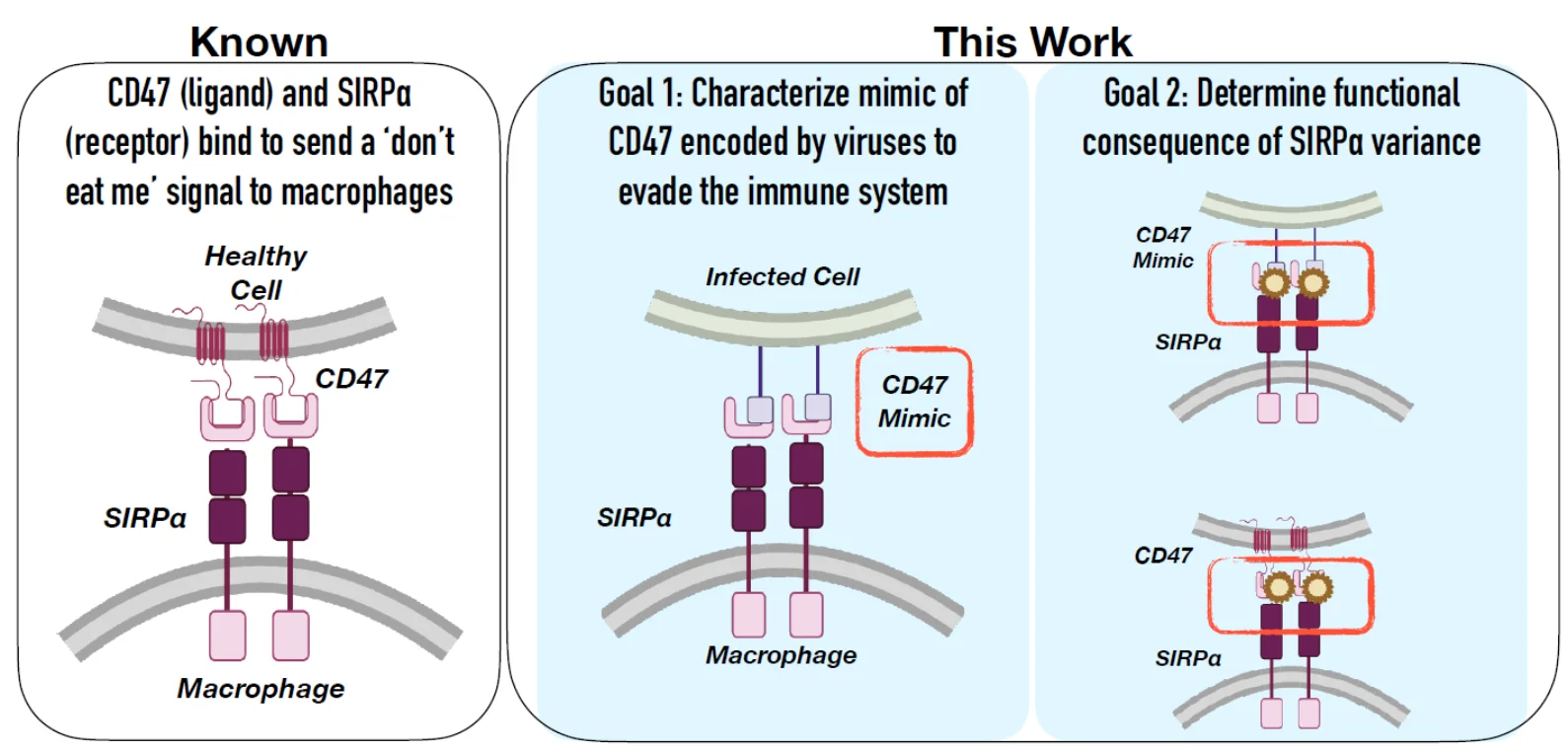‘Don’t Eat Me’ Signaling

Dr. Balyn Zaro, an Assistant Professor at the University of California-San Francisco (UCSF), aims to understand how interactions with viruses have shaped the ability of immune cells to distinguish self from non-self. This has important implications for overall human health as well as diseases including infection, cancer, neurodegeneration, and atherosclerosis.
Dr. Zaro recently found a protein encoded by a common virus that may mimic a human immunosuppressive protein. The human version of this protein is found on the surface of most healthy cells in the body and sends a self-recognition, or ‘don’t eat me’, signal via a receptor protein on the surface of immune cells. There is now evidence that a viral mimic of this ‘don’t eat me’ signal is expressed on virus-infected cells and preliminary evidence that it can bind to the immune cell receptor protein. Intriguingly, the sequence of this receptor is variable across the human population by geography, and variance is often associated with disease outcomes. Dr. Zaro and her team hypothesizes that evolutionary pressure by the ‘don’t eat me’ signal mimic has driven this genetic variance which may impact an individual’s ability to distinguish self from non-self. For this project, Dr. Zaro aims to validate that viral protein functions as a ‘don’t eat me’ signal mimic and explore whether genetic variance in the receptor alters human and viral mimic ‘don’t eat me’ signaling. In summary, this work will explain differences in how individuals recognize self, combat disease, and respond to immunotherapeutics.

